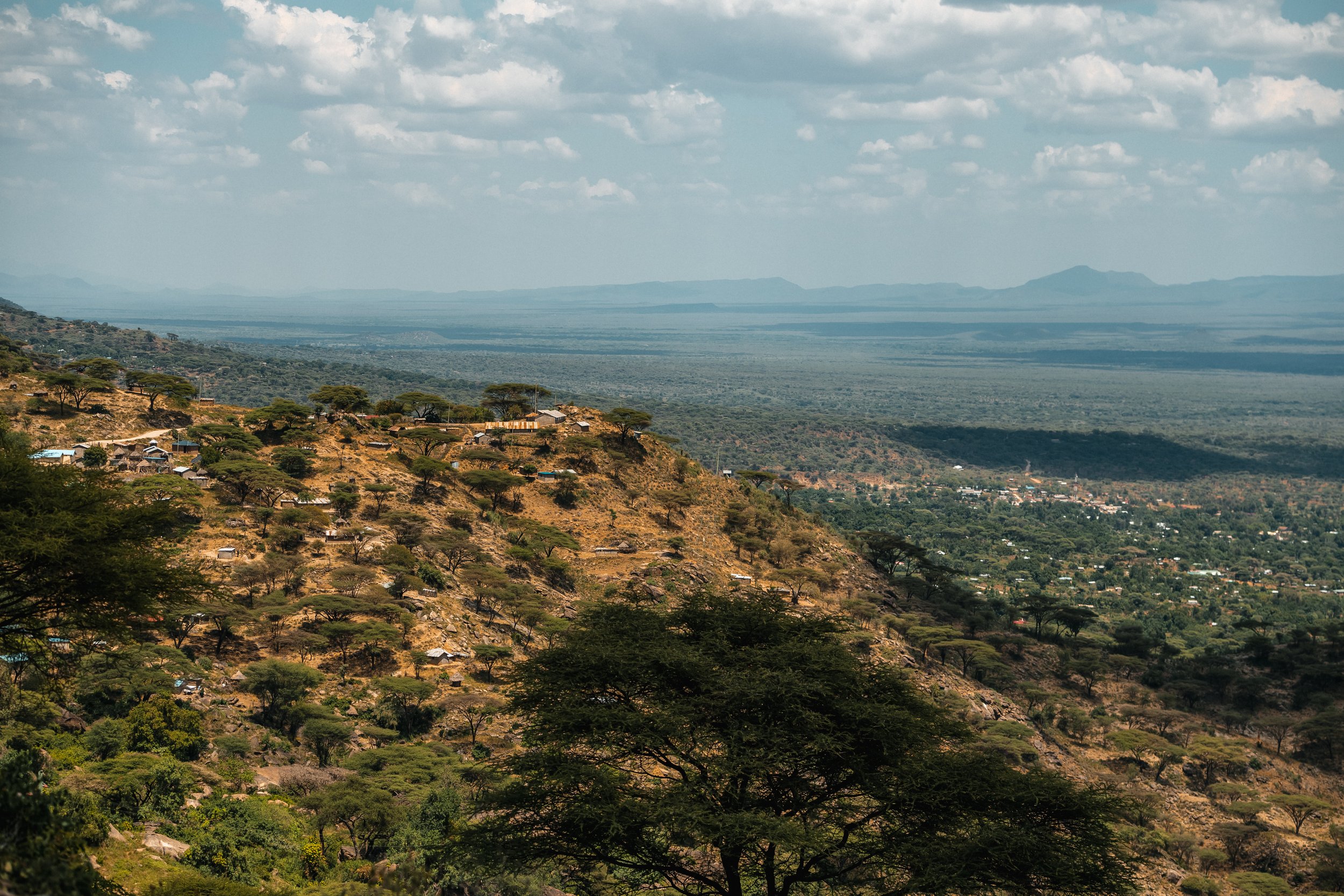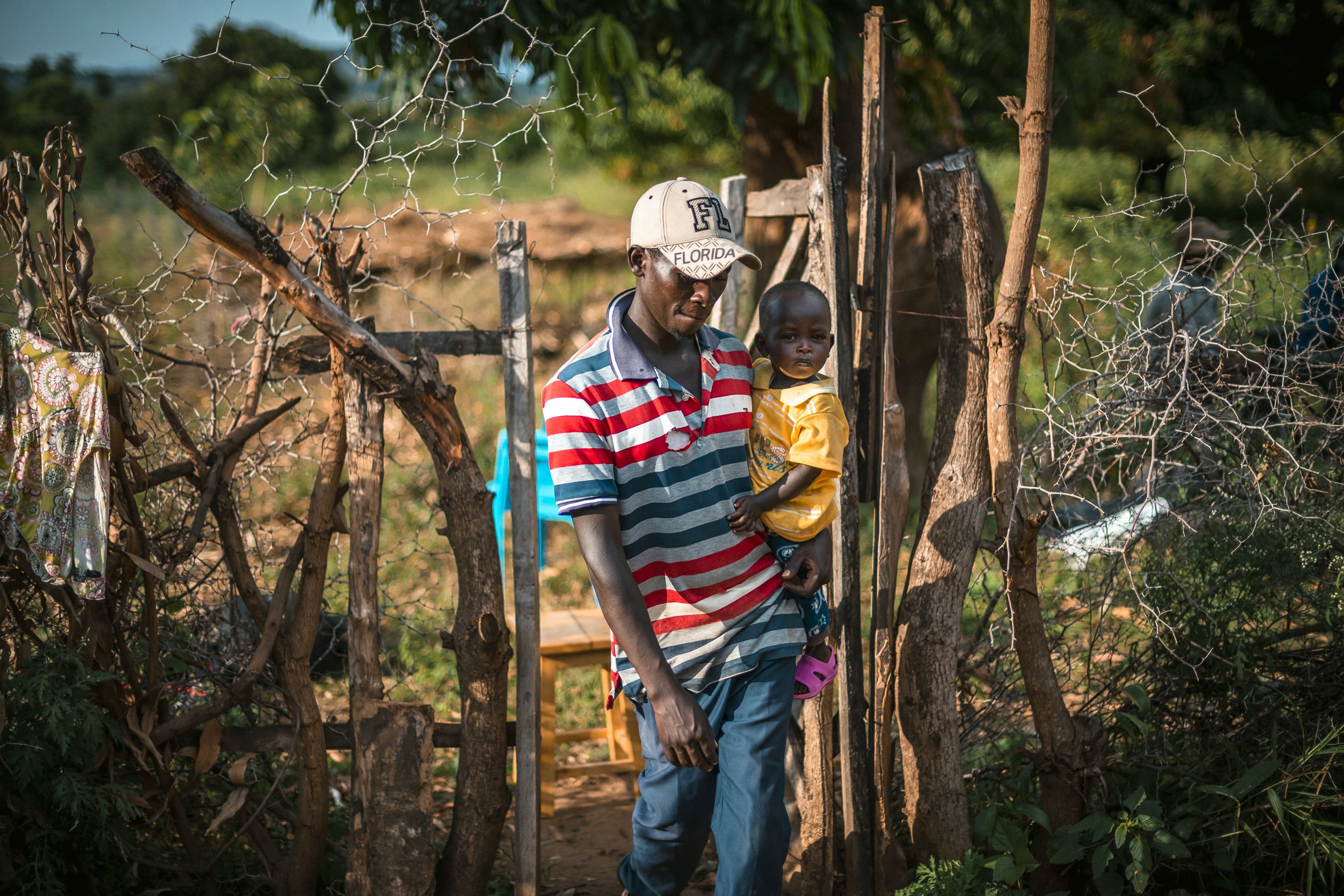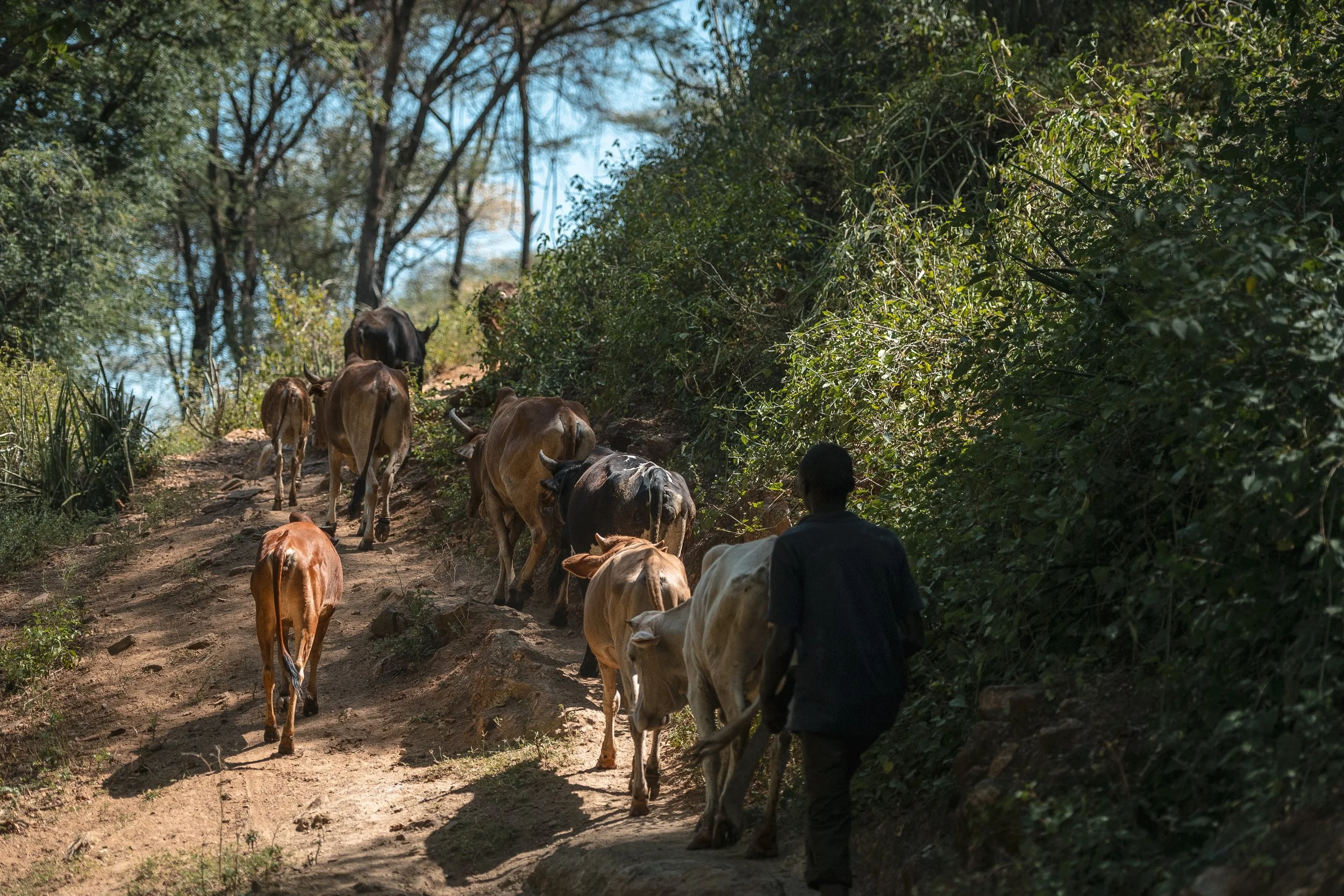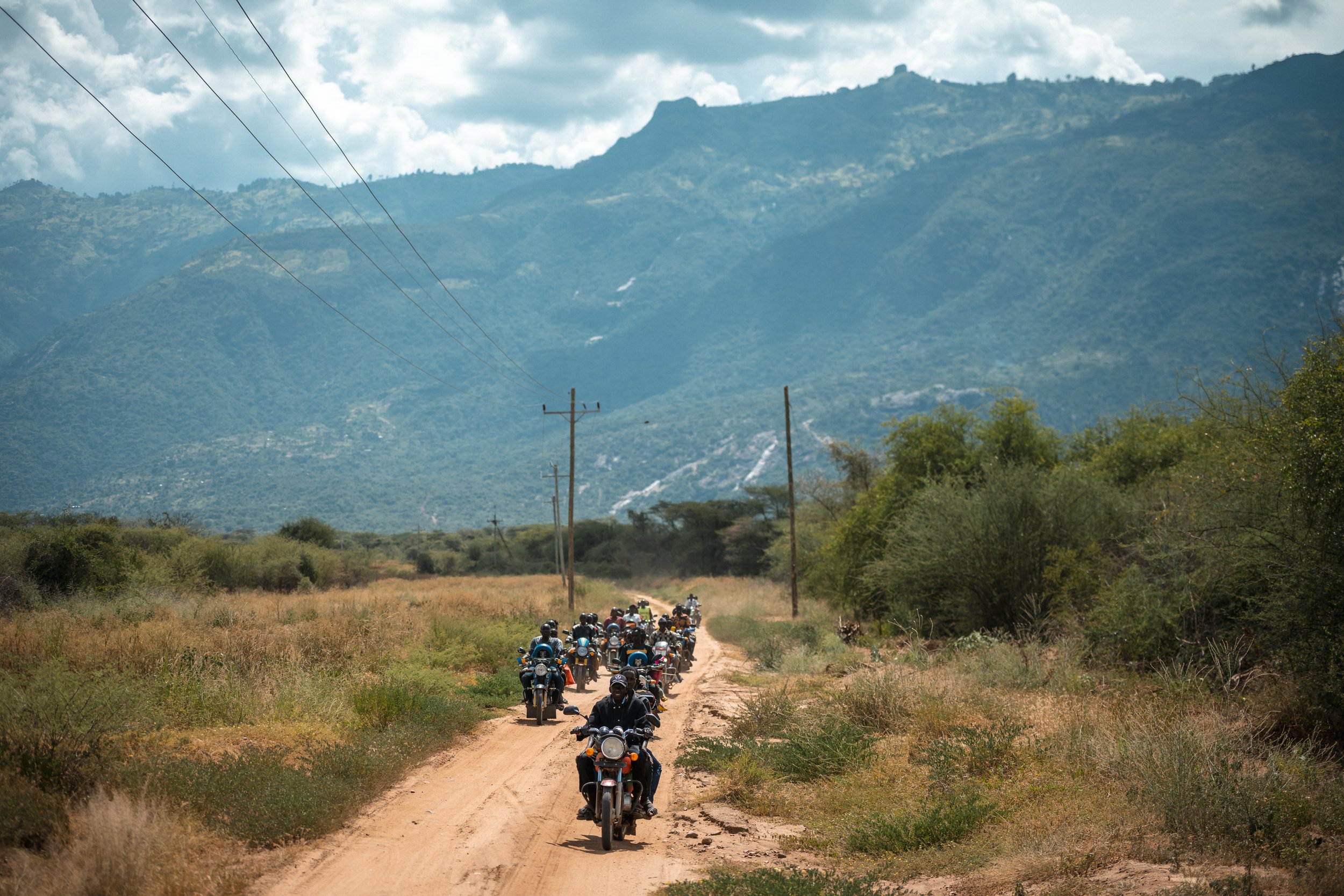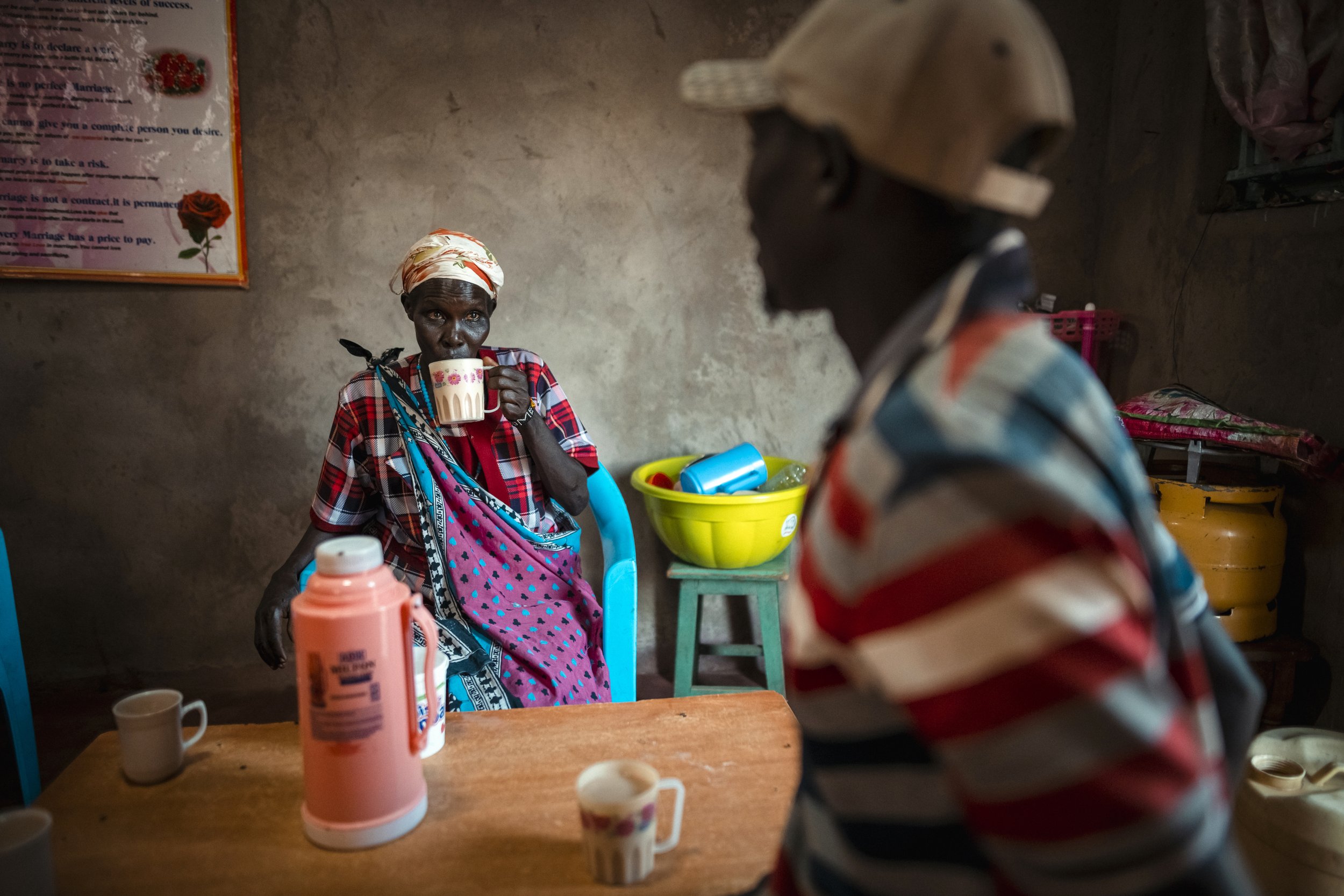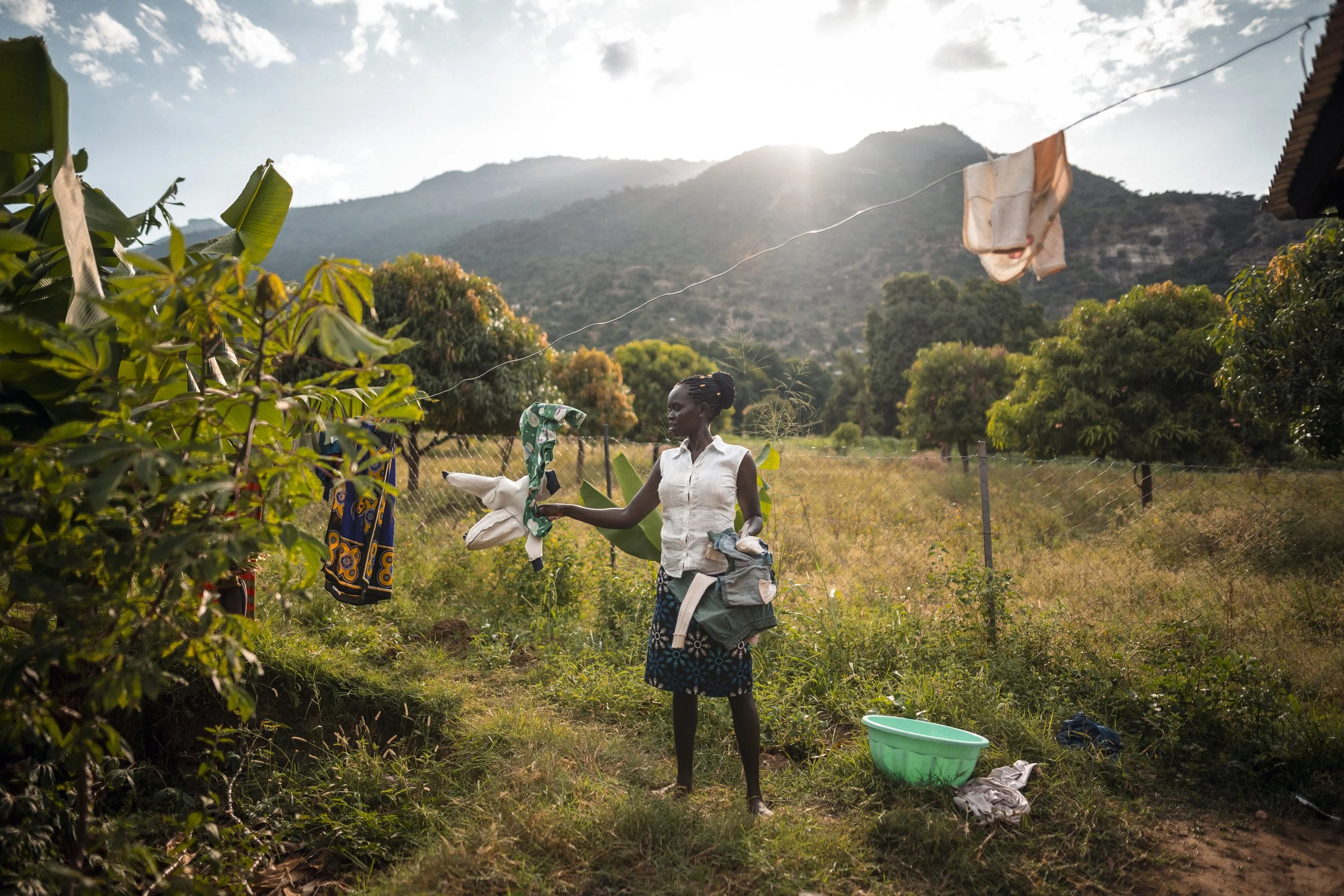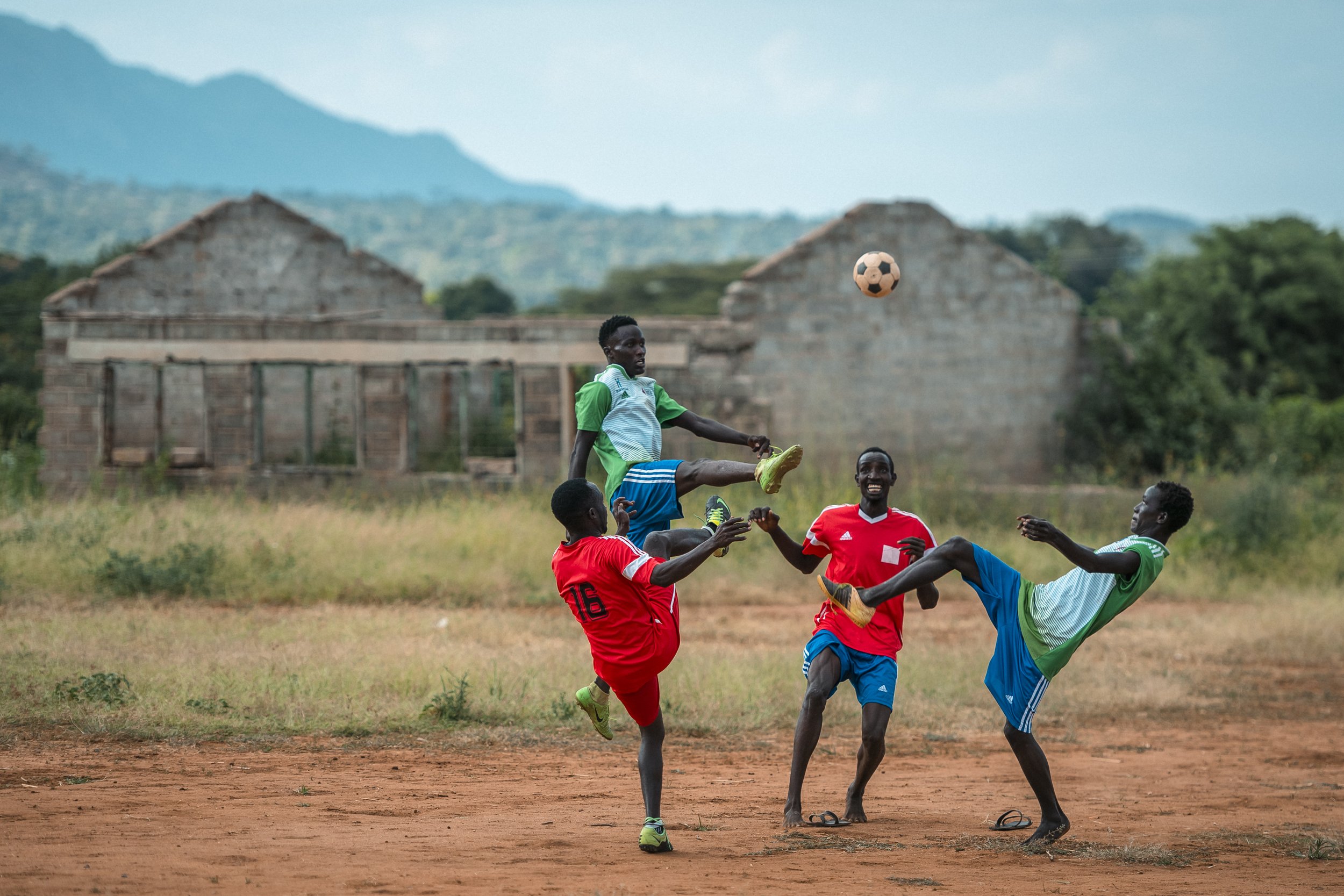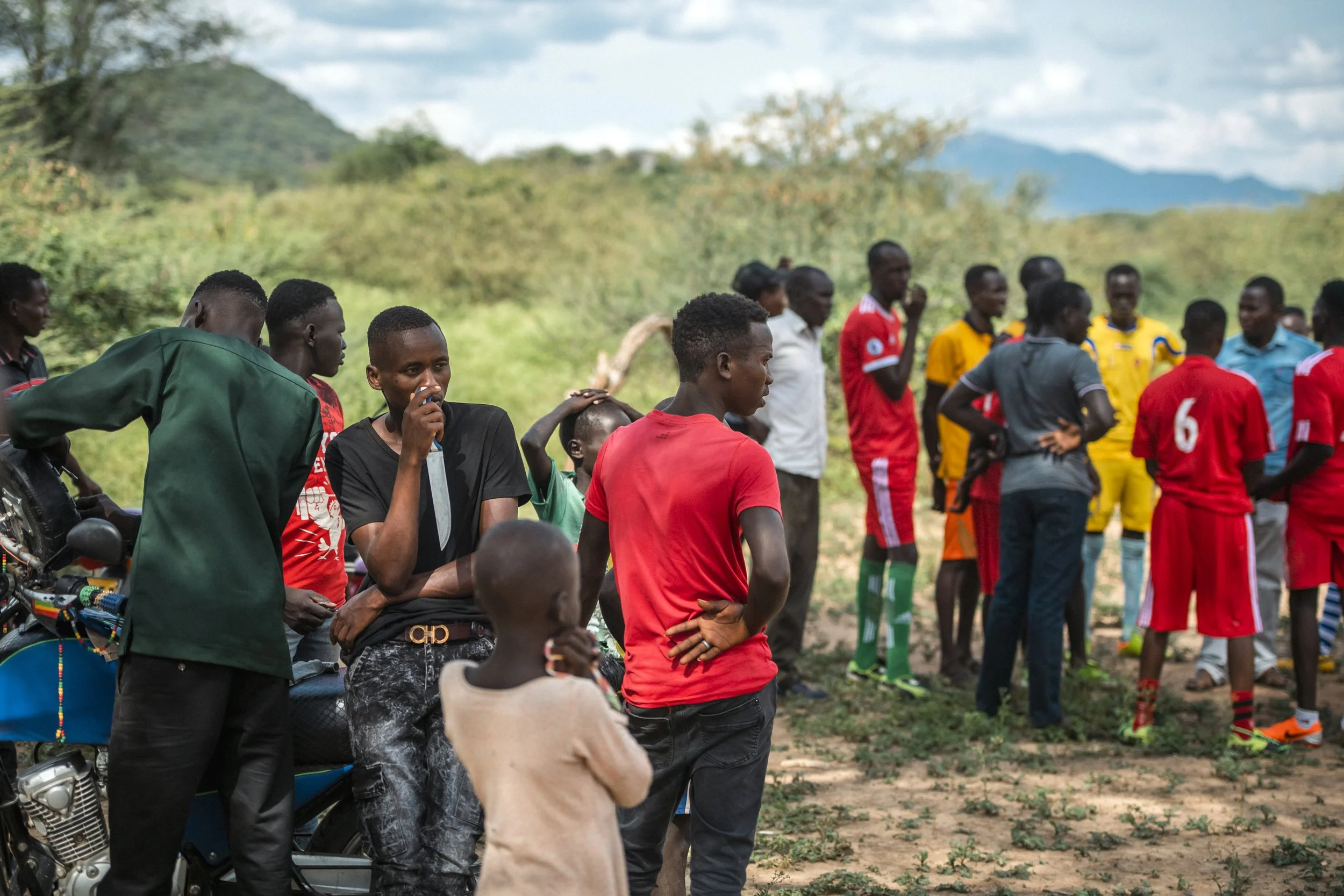Growing Beyond Violence
As a 13-year-old, Festus Kipkorir gripped a firearm for the first time. Today, he advocates for peace in Kenya's Kerio Valley, where the challenges posed by climate change have made it progressively harder for pastoral communities to sustain themselves, stoking conflicts and fueling an uptick in cattle theft.
Climate change has made life increasingly challenging for those who still make a living as pastoralists in Kenya's Kerio Valley.
KERIO VALLEY, Kenya – On a narrow, unpaved road in western Kenya, a herd of cows has brought traffic to a standstill. The road, dotted with thorny bushes, large rocks, and deep pits, offers no room for a 4x4 vehicle to manoeuvre around the cows. The bovine creatures, of light, brown, and mottled colouring, gaze lazily at the car as its driver waits patiently for each one to move aside.
In the Kerio Valley, cows are considered valuable property, much like camels, which are less common in this part of the region. Unfortunately, the theft of cattle has often escalated into violent conflicts, taking lives and causing heartache.
“Thieves killed my father in 2002. I was pretty small then, and I lost my aunt at the same time. Two people at once”, says Festus Kipkorir, 24, and looks around.
It was here, amidst the tall grass stretching between the road and the Kerio River, that his father was tending the family cattle, and where his body was found. The cows probably continued the journey, herded by thieves, to the other side of the river. For the Kipkorir family, losing the father and the most valuable property led to hard times.
Kerio Valley lies between the Tugen Hills and the Elgeyo Escarpment in Kenya.
Despite a rapid decline in his family's financial situation, Festus Kipkorir was able to attend school until the 8th grade. However, his father’s destiny continued to bother him.
“Violence stays in the heart,” Kipkorir explains, referring to the vicious cycle of revenge that even young people cannot escape. “I was 13 when I first held a gun.”
In the Kerio Valley, boys as young as 10 are pulled into acts of violence during cattle theft conflicts. The youngest are left to guard the village while older boys accompany the men on nighttime raids to neighbouring regions. Stealing cattle is seen as a rite of passage that turns boys into men.
Seeking strength in numbers and the ability to intimidate their opponents, a group of up to a hundred young men will band together to steal cattle. “We don't go there to fight. We might take two thousand animals at once,” says Kipkorir.
As a father, Festus Kipkorir dreams of providing his child with a good education, one that will offer more opportunities than just raising cattle.
Amid a scorching day in the Kerio Valley, Kipkorir welcomes guests into the cool refuge of his self-built two-room home. Over steaming cups of chiya tea, the former cattle thief opens up about the environmental factors fuelling conflict between communities in the valley.
Traditionally, the tribes of the valley have lived as nomads, relying on their herds of cattle, particularly cows and camels, for financial security. These animals serve as a source of income, allowing families to pay bills, educate their children, and invest in other ventures.
Cattle needs a lot to eat, and it must be tended in large areas. Particularly in the past years, the situation in the Kerio Valley has become increasingly tense due to the lack of pasture during dry seasons.
In Kenya, rain has been delayed particularly in the east and north of the country in the Garissa and Marsabit regions, but even here in the west, autumn was relatively dry. Climate change has made the annual cycle more unpredictable.
The most prized possession of those who live a nomadic lifestyle are their herds of livestock.
“The other side of the Kerio River is very dry, with no trees and just thorny bushes and sand,” explains Kipkorir, who lives on the more fertile west side of the river. “That's why our neighbours from the other side often bring their cattle to graze here. That leads to arguments.”
Kipkorir has found a new way of life, one that doesn't rely on cattle theft. With access to water for irrigation on the hills surrounding the valley, he now grows vegetables and owns a dairy cow, which provides enough milk to sell.
“The biggest reason for the reduction of cattle theft is that people have been trained to farm and they're no longer dependent on pastureland,” he says.
It was here where hundreds of men from the Kipkorir’s community would gather, ready for the raid.
Leaving a community of cattle thieves is a difficult feat, even if one's choices cause loved ones sadness and fear. Such was the case for Kipkorir, who tried to explain his criminal and dangerous lifestyle to his mother after she found out about his involvement in cattle theft.
“I tried to explain to her that this is about me, not her. In that situation, you just think you’re right. You’re not interested in anyone else’s opinion,” Kipkorir explains. “In reality, my opinions were dictated by a group I felt I was part of. I also felt the need to revenge my father’s death.”
His mother, Salome Kiptoo, feared her son wouldn’t come back from his nightly journeys. Some of the young men never return, some come back disabled.
“I feared and prayed every time he left. I still remember what a good and hard-working student he was at school,” mother tells.
Without peace, the two neighbouring football teams would be unable to safely visit each other's sides and play.
The circle of violence and the sudden impoverishment of families in the Kerio Valley are also threats to the education of children and adolescents. The obstacles are both financial and security-related. In recent years, cattle thieves have targeted schools and even a bus that was transporting students on a trip.
The capricious nature of climate change exacerbates poverty. According to an estimate by UNESCO, approximately two million children between the ages of 6 and 17 do not attend school in Kenya. Most of them are from families that lead a nomadic lifestyle in areas like the Kerio Valley.
Salome Kiptoo never condoned her son's participation in cattle raids. “I told him that there have never been thieves in our family, and you cannot be the first.”
Kipkorir acknowledges his fortune; despite his family's impoverishment after his father's death, he managed to complete his education, which, he believes, helped him quit cattle theft. Drawing on his own experience, he has attempted to persuade his former associates to abandon their violent ways.
“I've reminded them that just like me, they've also attended school. At school, we were taught the spirit of community and brotherhood. It’s not right to kill and steal.”
Festus Kipkorir's spouse, Francisca Kiptoo, hangs laundry in their small backyard.
Kipkorir says that some of his previous comrades are now, like him, advocates for peace. They play on the same soccer team with younger men.
“Football provides us with the opportunity to get to know our neighbours across the river. Playing is a much fairer way to measure our strength,” Kipkorir remarks.
“We are peace ambassadors on this side, and our neighbours in the other team are peace ambassadors on their own site. Together, we can stop the violence.”
Football has played a big role in achieving peace in the valley.
Salome Kiptoo's eyes light up when she talks about her son's transformation.
“At first, I didn't believe him when he said he was giving up cattle theft and starting to farm the land. But then I began to believe, and I even helped him buy seeds to grow green lentils and beans,” she says.
Now her son has his own little farm and a family, a wife and son. Just like his mother had hoped.
“I believe that lasting peace will bring many blessings. There will be no need to fear that our children won't come back at night. Good things happen in a community when there is peace. Everyone wins,” says Salome Kiptoo.
Festus Kipkorir held a firearm for the first time at the age of 13.
Kipkorir's son is still young, and the young father hopes he will finish school. As trucks bounce along the road, people of different ages gather in the shade of large trees and children in school uniforms walk by. The doors and windows of small kiosks are open, and men pick up sacks of mangoes piled on the roadside. For now, there is peace.
"It's more productive to play football, to win or lose in a game, than to be involved in violence and cattle rustling," says Festus Kipkorir.
text: Elisa Rimaila
photos: Antti Yrjönen
